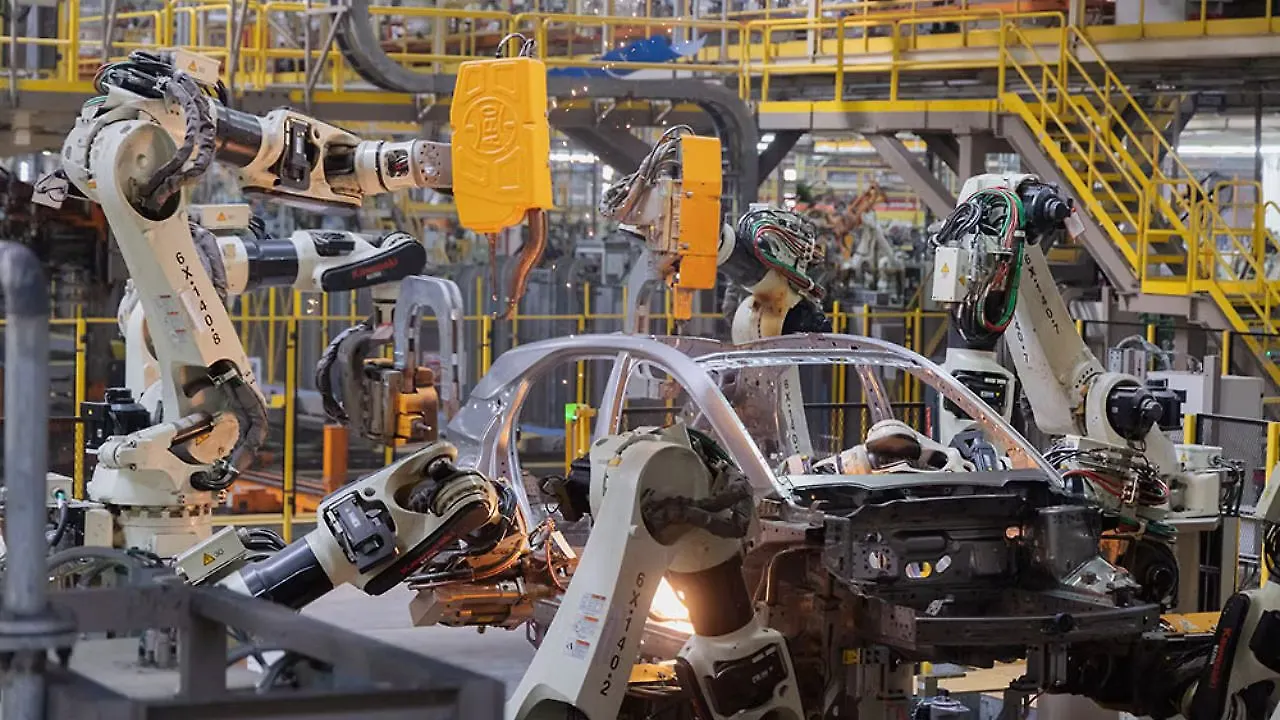
In a milestone event for Tamil Nadu’s burgeoning automotive industry, Tata Motors Group has laid the foundation for its cutting-edge vehicle manufacturing facility at Panapakkam in Ranipet district.
This state-of-the-art plant will represent a significant investment of approximately INR 9,000 crore and is set to produce a diverse range of vehicles, including electric and luxury models, with an annual capacity projected to reach 250,000 units.
The facility, designed to ramp up production over the next five to seven years, will serve as a global production hub for both Tata Motors and Jaguar Land Rover (JLR).
This marks Tata Motors’ first major foray into vehicle manufacturing in Tamil Nadu, expanding its already extensive domestic and global footprint. With established facilities in Jamshedpur, Lucknow, Pune, Sanand, and Pantnagar in India, and international operations spanning the UK, South Korea, and South Africa, Tata Motors continues to strengthen its position as a leader in the global automotive market. The Panapakkam facility will further enhance the group’s ability to serve both Indian and international markets, while also driving forward the shift towards sustainable mobility.
The groundbreaking ceremony for Tata Motors’ new manufacturing facility was a momentous occasion, graced by Tamil Nadu's Chief Minister, M K Stalin, and Tata Sons Chairman, N Chandrasekaran. During the event, Stalin lauded Tata’s long-standing relationship with the State, acknowledging the success of the group’s ventures in Tamil Nadu over the years. He emphasised the far-reaching benefits the new facility would bring, not only by generating over 5,000 direct and indirect jobs but also by fostering critical skill development within the local communities. This aligns with the State’s vision of becoming a leader in advanced manufacturing, he mentioned.
Further elevating its commitment to sustainability, the facility will be entirely powered by renewable energy, underlining Tata Motors' focus on eco-friendly operations.
Chandrasekaran expressed satisfaction in selecting Tamil Nadu for this world-class plant, citing the State’s industrial prowess and skilled workforce. He emphasised that Tata’s vision includes empowering women across all levels of the workforce, integrating advanced manufacturing technologies, and meeting the highest global standards in sustainability.

Tamil Nadu’s Role In Tata Motors' Next Chapter'
Chennai holds the unique distinction of being the only city globally to host manufacturing operations for nearly every form of surface mobility—from bicycles to battle tanks, encompassing two and three-wheelers, passenger cars, buses, trucks, tractors, off-road vehicles, railway coaches, and even small ships.
Tamil Nadu's automotive ecosystem is truly diverse, producing not only a wide array of vehicles but also a comprehensive range of components and systems, from fasteners to fast cars. Now, the State has added another gem to its crown with Tata Motors Group commencing operations at its state-of-the-art production facility in Panapakkam.
As of 2024, Tamil Nadu boasts a robust automotive industry, with a mix of traditional and electric vehicle (EV) manufacturers that include Ashok Leyland, Royal Enfield, Caterpillar, Tafe Tractors, TVS Motor, Kamaz Vectra, Renault, Nissan, Mitsubishi, Hyundai, Ford, Same Deutz-Fahr, Stellantis, Komatsu, Ampers Electric, Ola Electric, Ather Energy, BharatBenz, India Yamaha, BMW, Kubota, BYD, and Vinfast.
Tamil Nadu’s automotive sector received a rejuvenating boost with Ford India’s announcement of its return to operations after ceasing production a few years ago. This revival adds further momentum to its growing status as a central player in the global automotive ecosystem, underscoring its importance not just in India but on the international stage as well.
Notably, Tamil Nadu contributes 40% of India's EV production and is responsible for 70% of the nation’s two-wheeler EV manufacturing. The State is steadily solidifying its position as a key hub for domestic and export markets alike, driven by advanced manufacturing infrastructure, availability of talent pool and proactive policies that attract both investment and innovation.
Auto Components
Moreover, Tamil Nadu’s auto component industry plays a pivotal role in India's automotive sector, contributing approximately 35% of the nation’s total production. This vibrant industry forms the backbone of the country’s automotive supply chain, manufacturing a wide spectrum of parts and systems that fuel not just domestic demand but also power global automotive giants. Renowned for its advanced engineering capabilities and robust manufacturing infrastructure, Tamil Nadu's auto component sector is a driving force in India's ascent as a global automotive hub.
In addition, Tamil Nadu holds the unique distinction of being the state with the highest number of Deming Awards, a prestigious recognition for total quality management. The Chennai-based Sundram Brake Linings became the first Indian company and the first brake lining manufacturer in the world to receive this esteemed award. Additionally, TVS Motor made history as the first two-wheeler manufacturer globally to be honored with the Deming Award. Companies across various auto component segments—such as tyres, steering systems, steel, and carbon black—continue to challenge for this accolade, underscoring Tamil Nadu’s commitment to quality excellence and innovation in the automotive sector.
These compelling factors have positioned Tamil Nadu as a premier destination for both Indian and global automotive companies seeking strategic investment opportunities in India. Tata Motors' decision to establish its cutting-edge manufacturing facility for its marquee vehicles in the state further underscores the region's unrivaled industrial attributes. The choice reflects Tamil Nadu’s deep-rooted expertise, infrastructure, and a thriving ecosystem that continue to attract top-tier players in the automotive sector, reinforcing its stature as a crucial hub in the global automotive landscape.
Also Read:
Tata Curvv: Striking Design, But Does It Drive the Point Home?
VinFast Announces $2 Billion Investment In Tamil Nadu To Make EVs